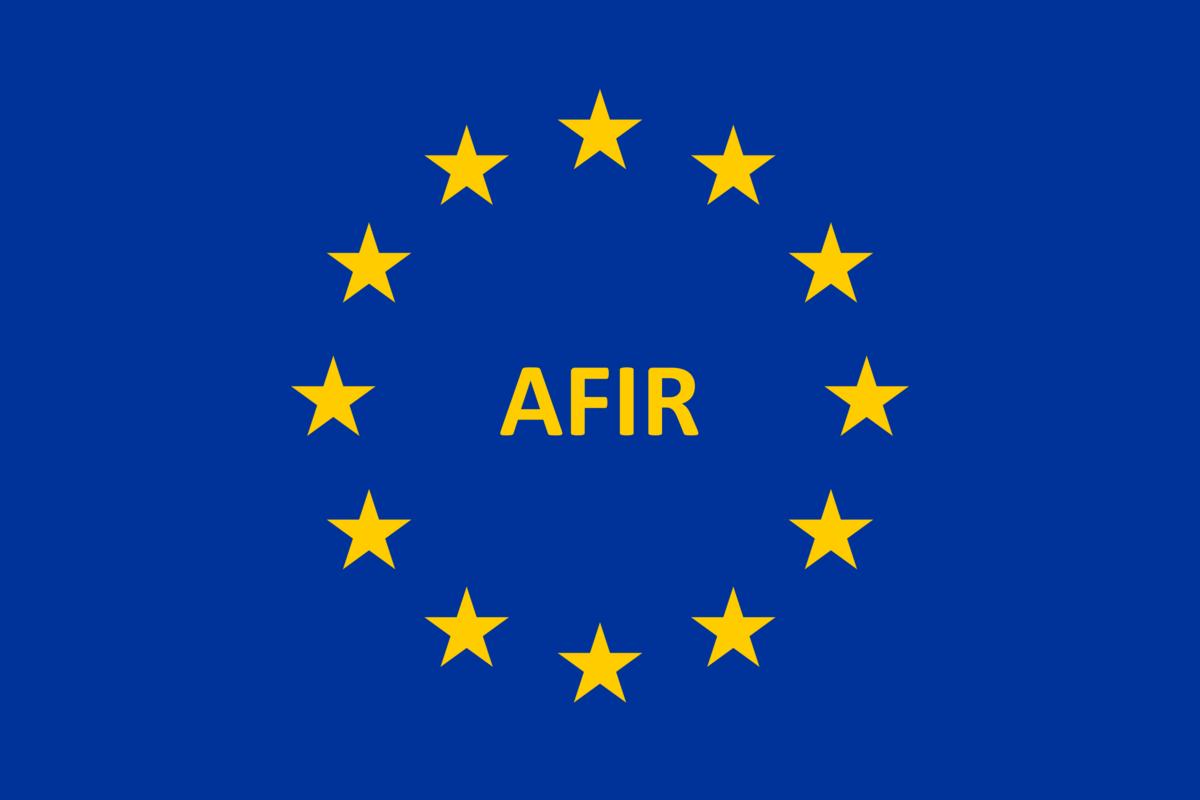Happy Monday. This is Electric Avenue, the newsletter that brings you the best of EVs & charging so you`re always smarter than the Sales associate at your local auto dealership.
BTW, if someone forwarded this to you, subscribe now to get the next edition directly to your inbox. You can also access the complete library of previous Electric Avenue newsletters for free:
Here's what we have for you today:
EV & Charging stock performance
1 Regulation
4 thoughts
1 Link
EV Meme of the week

While one of the biggest dramas in the history of crypto unfolded this week, the stock market was relatively calm. Tesla and Lucid are slightly down, while Polestar, Xpeng, NIO and Rivian had some minor gains. The stocks of charger manufacturers and charging networks were pretty constant as well.
1 Regulation 🖼

On October 19th, the European Parliament published the adopted amendment to the alternative fuels infrastructure regulation (AFIR). The goal of AFIR is to ensure the availability and ease of use of a dense and widespread network of infrastructure for alternative fuels throughout the EU. Today, we want to give you some thoughts about Article 30 and the requirement for the use of payment systems.
The executive summary sheet states that "...there is a lack of transparent consumer information and easy to use payment systems, which impact user acceptance. Without further EU level intervention, such lack of interoperable, easy-to use recharging and refuelling infrastructure is likely to become a barrier to the needed market growth of low and zero-emission vehicles and vessels in view of the increase 2030 climate ambition."
To address this, the newest amendment to Article 30 of the AFIR states:
(30) Users of alternative fuel vehicles should be able to pay easily and conveniently at all publicly accessible recharging and refuelling points, without the need to enter into a contract with the operator of the recharging or refuelling point or a mobility service provider. Therefore, for recharging or refuelling on an ad hoc basis, all publicly accessible recharging and refuelling points should accept electronic card payment or devices with a contactless functionality that is at least able to read payment cards, and if possible also additional payment instruments that are widely used in the Union. That ad hoc payment method should always be available to consumers, even when contract-based payments are offered at the recharging or refuelling point.
4 Thoughts 💬
Regulation's scope on charging payments got extended: In the newest amendment of AFIR the EU parliament removed the limitation that only charging points with a power output of more than 50 kW have to be equipped with card payment via stationary readers. This makes credit card readers mandatory for all public charging stations in Europe, including AC charge-points.
Outside-in perspective on electric vehicle charging: From an outside perspective on the electric vehicle charging market, the requirement to apply established payment system on charging stations can be seen as a customer requirement which is long overdue. Generally speaking, the greater choice and availability of payment methods is a positive development fostered by AFIR, which will help a new segment of customers transition to electric mobility by enabling them to use familiar means (e.g. credit cards) for payment.
Inside-out perspective from the market: The European public charging ecosystem has found its own solution for public charging payments - The roles of Charge Point Operator (CPO) and Electric Mobility Provider (EMP or MSP as per AFIR definition) have been long established and are fairly mature. Compare this to the US where the role of a pure-play EMP that does not operate any charging stations is almost non-existent. The established players in Europe have long argued that contract-based payments are sufficient and credit card terminals add unnecessary cost and complexity to public charging stations. However, some CPOs in Europe have made the choice to offer contactless payments on their network even before EU regulation is forcing them to do so. So how do customers swing when they have a choice between ad-hoc and contract-based payment? In a podcast interview Alexander Junge, board member of Aral pulse (leading fast charging network in Germany and subsidiary of BP), pointed out that only 5-10% of charging sessions on their network are payed with contactless payment (Source - in German: CleanElectric Podcast - from Minute 44:54).
AFIR tackles the past and the future will look different: Among EV drivers the concept of Plug and Charge (referring to the official ISO 15118 standard - not proprietary solutions like AutoCharge) is seen as the most comfortable way to authenticate and pay for a charging session. Instead of enforcing legacy solutions like physical credit card terminals, regulators need to understand and foster the adoption of innovative solutions like Plug and Charge and ensure a wider adoption in a non-discriminatory market environment with car manufacturers, CPOs and EMPs.
1 Link @
GM to test V2X in San Diego: After GM`s Energy division focusing on V2G & Co recently came "out of stealth mode", they are now announcing a research partnership with the electric utility San Diego Gas&Electric (SDG&E). The partnership will focus on:
Documenting best V2H practices so that the benefits are apparent to consumers.
Creating systems to help utility providers and automakers tap into cloud-based energy management platforms and distributed energy resources (EVs with V2G) to create Virtual Power Plants.
Investigating using EVs to assist in microgrid environments, promoting grid resiliency in communities. Microgrids are designed to use the stored energy in batteries as backup during an outage.
San Diego currently has the highest electricity rates in the country. We`ll be following this initiative to see how it can benefit EV drivers and ratepayers - stay tuned.
Meme of the Week

New to Electric Avenue and curious about our past editions? Have a look at our website.
DISCLAIMER: None of this is financial or tax advice. This newsletter is strictly educational and is not investment advice or a solicitation to buy or sell any assets or to make any financial decisions.


